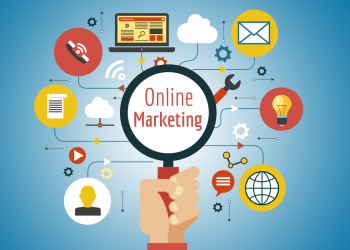E-marketing, also known as digital marketing or online marketing, is the practice of promoting products or services through digital channels such as websites, search engines, social media, email, and mobile apps. In today’s increasingly digital world, e-marketing has become an essential part of any business strategy, as more and more consumers turn to the internet to research and purchase products and services.
One of the key advantages of e-marketing is its ability to reach a wide audience quickly and cost-effectively. With the click of a button, businesses can reach customers around the world, target specific demographics based on factors such as age, location, and interests, and track the effectiveness of their marketing campaigns in real-time. This level of precision and efficiency is unmatched by traditional marketing methods such as print ads, billboards, or direct mail.
E-marketing encompasses a wide range of strategies and tactics, each with its own unique benefits and challenges. Search engine optimization (SEO) is one of the most popular e-marketing strategies, as it involves optimizing a website’s content and structure to rank higher in search engine results pages (SERPs). This can help businesses attract more organic traffic to their site, which can ultimately lead to more sales and revenue.
Social media marketing is another popular e-marketing strategy, as it allows businesses to connect with customers on platforms such as Facebook, Twitter, and Instagram. By creating engaging content, responding to customer inquiries and feedback, and running targeted advertising campaigns, businesses can build strong relationships with their customers and increase brand awareness.
Email marketing is another effective e-marketing strategy, as it allows businesses to send targeted messages directly to customers’ inboxes. By segmenting their email lists and creating personalized, relevant content, businesses can increase open rates, click-through rates, and conversions.
Mobile marketing is also becoming increasingly important, as more and more consumers use their smartphones to browse the internet, make purchases, and interact with businesses. By creating mobile-friendly websites and apps, sending push notifications, and using location-based targeting, businesses can tap into this growing market and connect with customers on the go.
In conclusion, e-marketing has become an essential part of any modern business strategy, as it offers unparalleled efficiency, precision, and reach. By leveraging a variety of e-marketing tactics, businesses can reach a wide audience, build strong relationships with their customers, and ultimately drive sales and revenue. As the digital landscape continues to evolve, e-marketing will undoubtedly continue to play a key role in the success of businesses both large and small.














